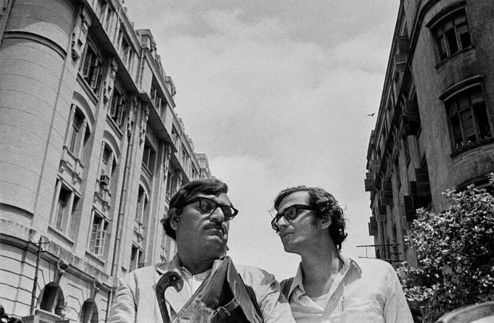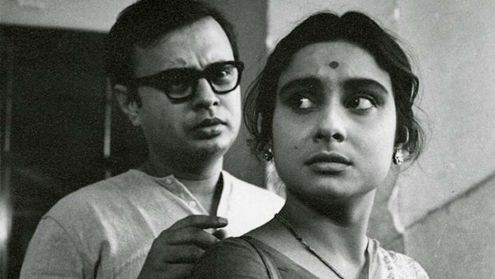Masterpieces Of Satyajit Ray
Jun 25, 2019 • 18 views
Bengali [Bangla] cinema owe a huge debt to the legendary director-cum-screenwriter, Satyajit Ray who happens to change the trajectory of the Indian filmmaking. His sheer, astonishing creativity inspired and opened the doors of perception for several generations of film directors. He was so far ahead of his time that he showcased those real-life issues in his black-and-white reel which was quite not visible during the 1960s.

He soon became a social and somewhat political commentary through the string of films he made. His debut film Pather Panchali (Song of the Road) has booked its place in the pantheon of cinema for eternity. There is a streak of pure humanism that runs through almost all of Ray’s films that is thoroughly consistent and thought-provoking. These treasure of emotions are reflected in two such masterpieces:

Jana Aranya
(The Middleman) was Ray's cynical release during the Emergency period for the actor, Somnath was dragged to undo his moral code. Passing out from Calcutta University, Somnath went on to crack an interview but was humiliated by the utterly irrelevant questions such as-'What is the weight of the moon?' Soon the frustrated Bengali Brahmin youth was rescued by an experienced well-wisher (played beautifully by Utpal Dutt) who motivated him to start a business. But the film vehemently portrays how an unemployed young lad became a protagonist only to survive in the entreuprenership world. The climax goes like that where Somnath was trying to find a sex worker he can supply to a rich businessman to get a contract. In the words of Ray there is no pure, noble being; Somnath who once was reluctant to do trading became a successful middleman by losing his principles.

Mahanagar
(The Big City) starring Madhabi Mukherjee, was the portrayal of a housewife turning into a saleswoman in the 1950s. Well, other than Ray who else can bring a naari, here Arati, outside the house and take up a job to supplement the household income. Breaking all the rules and customs, when Aratidecided to take the job of selling sewing machines door-to-door, Subrata, her husband supported with enthusiasm. But once he lost his job, his male ego insecured him and thehappy couple drift apart. In the mean time Arati met a new friend in a colleague - Edith, an Anglo-Indian woman who was later fired as her boss was untolerant of 'our ex-rulers.'These incident shivered the ethically upright young woman who not only stood up against injustice but resigned from the post. Ray beautifully upheld the indomitable spirit of a woman.
